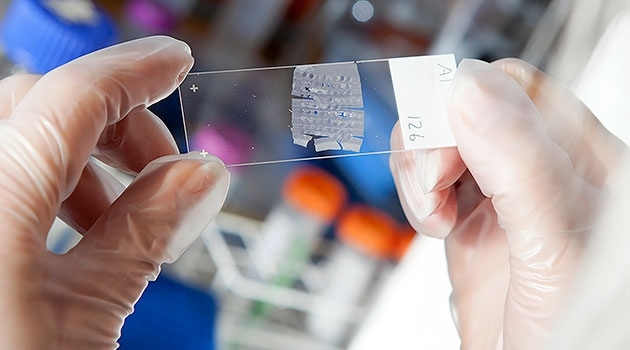Precision medicine centre paves the way for more accurate diagnosis and treatment
Precision medicine is gaining ground in the field of highly specialised care. More extensive use of advanced gene sequencing will make diagnoses more accurate while allowing treatments to be tailored more to individuals. Region Uppsala, Uppsala University Hospital and Uppsala University have launched a collaboration within the Precision Medicine Centre in Uppsala, PMCU, which was inaugurated on Tuesday, 21 June.
Precision medicine aims to provide patients with care and treatment tailored to the individual, taking into account both hereditary and other factors such as age, gender, medical values, lifestyle habits and so forth. Extended gene sequencing has been used at Uppsala University Hospital for diagnosis of various cancers and the investigation of rare diagnoses for a number of years now. New generation sequencing (NGS) technology increases opportunities for more precise diagnosis and hence more reliable choice of treatment with the desired outcome.
blood and tumour diseases.
Photo: Mikael Wallerstedt
“Precision medicine has revolutionised cancer care. Advances in genetic engineering have allowed new drugs to be developed that modify a patient’s own cells to create a drug tailored to that particular individual. The new CAR T-cell immunotherapy is a prime example of this,” says Gunilla Enblad, senior physician and professor of blood and tumour diseases at Uppsala University Hospital.
The treatment involves genetically modifying the patient’s own immune system cells (T-cells) and building a new T-cell receptor that is introduced into the cells via a viral vector so that they attack cancer cells and can cure some people who were previously deemed terminally ill. Uppsala was the first place in Europe to conduct studies, and this therapy is now an option in the event of certain relapsed lymphomas and leukaemias, both as routine clinical practice and in studies. CAR T-cell therapy is also being developed for other cancers. According to Enblad, myeloma comes first and will probably be followed by solid cancers, i.e. tumours in the lung, breast, prostate, colon, rectum and bladder, for instance.
Precision-controlled treatment of diabetes
Another area is diabetes, where a distinction has traditionally been made between type 1 and type 2 diabetes, but the disease is heterogeneous and can develop and also be complicated by other diseases in different ways.
of endocrinology/diabetes.
Photo: Mikael Wallerstedt
“Different types of insulin, as well as medications with different mechanisms of action, may be better or less suited to treating the individual. As we learn more about the unique diabetes situation of each individual, based on genetics, laboratory tests, functional image analysis and continuous glucose measurements, the conditions are created for increasingly precision-controlled and individual-centred care,” says Per-Ola Carlsson, senior physician and professor of endocrinology/diabetes at Uppsala University Hospital.
He also points out that new intelligence about how protein expression differs between different tissues in the body is increasing our understanding of how to develop targeted drug therapies.
“In the treatment of the insulin-producing Islets of Langerhans, cell therapy drugs are of huge interest as they have the ability to target diseased, inflamed tissue, but can also target unique receptors and thus the accumulation of cells in the Islets of Langerhans, for example,” he concludes.
Annica Hulth
Precision Medicine Centre Uppsala - PMCU
- A centre in collaboration between Uppsala University Hospital, Region Uppsala and Uppsala University opened on 21 June 2022.
- Its aim is to ensure that more patients benefit from precision diagnostics and precision treatment.
- The centre will assist with the development and implementation of new solutions in healthcare through cross-border research and innovation.

